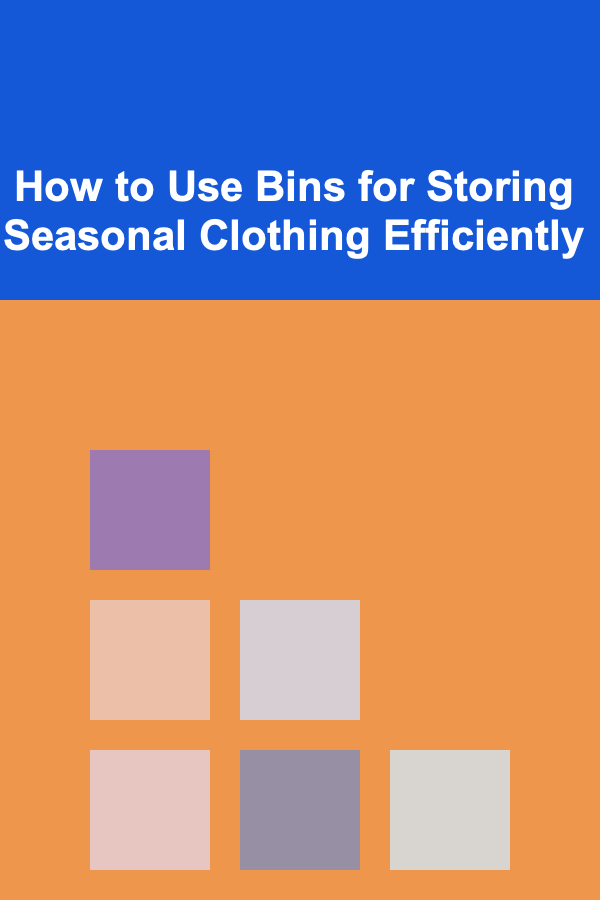
How To Acquire Basic Gardening Skills
ebook include PDF & Audio bundle (Micro Guide)
$12.99$7.99
Limited Time Offer! Order within the next:

Gardening is more than just planting flowers and vegetables; it is an art form that connects humans with nature. As more people become aware of sustainability and the benefits of growing their own food, gardening has gained popularity. For those who are new to the world of gardening, it might seem daunting at first, but with the right approach, acquiring basic gardening skills is very achievable.
In this article, we will explore how you can start acquiring fundamental gardening skills. From understanding the importance of soil to learning how to plant seeds and care for plants, this guide will provide you with the knowledge you need to become a successful gardener.
Understanding the Basics of Soil
Soil is the foundation of any garden. The health and quality of your soil determine the success of your plants. When you begin your gardening journey, it's essential to understand the different types of soil and how they influence plant growth.
1.1 Types of Soil
There are several types of soil, including clay, sandy, silty, loamy, and peaty soils. Each type has unique properties that affect how water drains, how nutrients are retained, and how well roots can establish themselves.
- Clay soil: Known for being dense and sticky when wet, it retains water but often lacks good drainage, which can suffocate plant roots.
- Sandy soil: This soil drains well but often lacks nutrients.
- Silty soil: Fine-grained and nutrient-rich, silty soil holds moisture well but can become compacted easily.
- Loamy soil: Loamy soil is a mixture of sand, clay, and silt, making it ideal for most plants. It is rich in nutrients, well-draining, and easy to work with.
- Peaty soil: Peaty soil is rich in organic matter and moisture, but it can be acidic and may require balancing for optimal plant growth.
1.2 Soil Testing and Improvement
Before planting anything, it's crucial to test your soil to understand its pH, nutrient levels, and texture. Many garden centers offer soil testing kits, or you can send samples to a local agricultural extension service for a detailed analysis.
Once you understand your soil, you can amend it to improve its quality. For example:
- Add compost or organic matter to increase nutrient levels and improve drainage.
- Use lime to raise the pH of acidic soil.
- Incorporate sand to improve drainage in heavy clay soil.
Understanding Plant Needs
Different plants have different needs in terms of sunlight, water, and nutrients. Understanding these basic requirements is key to ensuring that your plants thrive.
2.1 Sunlight Requirements
Plants can be classified based on their sunlight needs:
- Full sun: These plants require at least six hours of direct sunlight each day. Examples include tomatoes, peppers, and sunflowers.
- Partial sun/partial shade: These plants require about 3 to 6 hours of sunlight. Examples include lettuce, spinach, and certain flowers like pansies.
- Full shade: These plants thrive in low light conditions. Examples include ferns, hostas, and begonias.
When planning your garden, make sure to place plants that need full sun in the brightest areas of your garden and plants that prefer shade in areas with less light.
2.2 Watering Techniques
Watering is a critical aspect of gardening. Overwatering or underwatering can both harm your plants. Understanding how much water your plants need is essential for their health.
- Deep watering: Water deeply to encourage plants to develop deep root systems. Shallow watering can lead to weak roots.
- Watering frequency: Some plants need consistent moisture, while others prefer to dry out between waterings. Research the specific needs of the plants you are growing.
- Mulching: Applying a layer of mulch around your plants can help retain moisture and reduce the frequency of watering.
2.3 Fertilization
Plants need nutrients to grow, and while soil provides some of these nutrients, it's often necessary to supplement with fertilizers. There are two types of fertilizers: organic and synthetic.
- Organic fertilizers: These are made from natural materials such as compost, manure, and fish emulsion. They release nutrients slowly and improve soil health over time.
- Synthetic fertilizers: These are manufactured chemicals that provide immediate nutrients to plants. While they are effective, they can sometimes harm the environment if used excessively.
Make sure to follow the instructions on the fertilizer package, and always choose a fertilizer suited to the plants you are growing.
Starting Seeds and Transplanting
Growing plants from seeds is a rewarding experience, but it requires patience and attention to detail. Alternatively, many gardeners prefer to transplant seedlings or young plants, which is quicker but often more expensive.
3.1 Starting Seeds Indoors
Starting seeds indoors is a great way to get a head start on the growing season, especially in regions with cold winters. Here are the basic steps:
- Choose the right containers: Use seed trays or small pots with drainage holes.
- Use good-quality seed-starting mix: A lightweight, well-draining mix is essential for healthy seedling growth.
- Provide proper lighting: If growing indoors, ensure that the seeds receive adequate light. You can use grow lights if natural light is insufficient.
- Keep the soil moist but not soggy: Seeds need moisture to germinate, but too much water can cause them to rot.
- Transplant when ready: Once your seedlings have grown large enough and the outdoor conditions are suitable, transplant them into the garden.
3.2 Transplanting Seedlings
If you prefer not to start seeds from scratch, purchasing young plants from a nursery is a good alternative. When transplanting seedlings:
- Choose the right time: Wait until the danger of frost has passed and the soil is warm enough for the plants.
- Prepare the planting holes: Make sure the holes are large enough to accommodate the root ball without crowding.
- Water thoroughly after planting: This helps settle the soil around the roots and reduces transplant shock.
- Mulch around the plants: This helps conserve moisture and keep weeds at bay.
Weed and Pest Control
Weeds and pests are inevitable in any garden, but with the right techniques, you can manage them effectively.
4.1 Weeding
Weeds compete with your plants for nutrients and space. Regular weeding is essential to keep your garden healthy.
- Mulching: As mentioned earlier, mulch can help suppress weeds by blocking sunlight from reaching weed seeds.
- Hand weeding: Use a hand trowel or weed puller to remove weeds by the roots, ensuring they do not regrow.
- Weed barriers: Use landscape fabric or plastic sheeting to prevent weeds from sprouting in areas where you don't want plants.
4.2 Pest Control
Pests can damage your plants and reduce their yield. There are several ways to control pests:
- Natural predators: Encourage beneficial insects like ladybugs, which eat aphids, or use birds to control pests.
- Organic pesticides: Neem oil, insecticidal soap, and diatomaceous earth are all safe, natural options for controlling pests.
- Companion planting: Some plants can naturally repel pests. For example, planting marigolds can help keep certain pests away from tomatoes.
It's important to regularly inspect your plants for signs of pests and diseases. Early detection will help prevent widespread damage.
Seasonal Gardening and Crop Rotation
Understanding the seasons and how they affect your plants is crucial for long-term gardening success. Different plants have different growing seasons, so it's essential to plan your garden accordingly.
5.1 Seasonal Planting
- Spring and summer: These are the ideal growing seasons for most vegetables and flowers. Be sure to plant after the last frost date in your region.
- Fall and winter: In cooler climates, gardening slows down in the fall and winter. However, some plants like kale, spinach, and garlic can still be grown in cooler months, especially with the use of cold frames or greenhouses.
5.2 Crop Rotation
Crop rotation involves changing the location of plants in your garden each year to reduce the risk of soil depletion and pest buildup. By rotating crops, you can help maintain healthy soil and reduce the need for chemical fertilizers and pesticides.
- Legumes: These plants, such as beans and peas, are nitrogen-fixing, meaning they improve soil fertility for the next crop.
- Heavy feeders: Plants like tomatoes and corn require lots of nutrients and should be rotated with crops that don't deplete the soil as quickly.
Troubleshooting Common Gardening Problems
No garden is without its challenges, but many common problems can be solved with a little knowledge and effort.
6.1 Yellowing Leaves
Yellowing leaves can indicate several problems, including:
- Overwatering: Ensure your soil has proper drainage, and only water when the top inch of soil feels dry.
- Nutrient deficiencies: A lack of nitrogen, iron, or magnesium can cause yellowing. Add a balanced fertilizer or organic matter to address this.
6.2 Poor Growth
If your plants aren't growing as expected, it could be due to inadequate sunlight, improper watering, or poor soil. Check the location of your plants, ensure they are receiving the proper care, and amend the soil if necessary.
6.3 Pests and Diseases
Inspect your plants regularly for pests or signs of disease. Early intervention is key to preventing damage. Use organic methods for pest control and remove diseased plants promptly.
Conclusion
Acquiring basic gardening skills takes time and practice, but the rewards are worth the effort. By understanding soil types, plant needs, and basic gardening techniques, you can create a thriving garden that provides beauty and sustenance. Keep learning, experimenting, and growing your knowledge of gardening, and soon you'll be able to enjoy the fruits (and vegetables) of your labor. Happy gardening!
Reading More From Our Other Websites
- [Home Space Saving 101] How to Maximize Closet Shelves with Smart Organization Tips
- [Home Holiday Decoration 101] How to Choose the Best Holiday Decor Themes to Match Your Style
- [Skydiving Tip 101] Hearts Racing: What a Skydiving First Date Reveals About Compatibility
- [Home Holiday Decoration 101] How to Style Your Holiday Front Porch to Impress Your Guests
- [Horseback Riding Tip 101] Beginner's Blueprint: Mastering the Essentials of Horseback Riding
- [Organization Tip 101] How to Maximize Small Office Spaces with Smart Solutions
- [Organization Tip 101] How to Create a Nutrition Station in Your Fitness Area
- [Metal Stamping Tip 101] Top 7 Challenges in Metal Stamping Automation and Proven Solutions
- [Home Holiday Decoration 101] How to Add Holiday Cheer to Your Bedroom with Subtle Touches
- [Personal Investment 101] How to Use Deep Learning to Automate Your Way to Passive Income

How to Deep Clean Your Kitchen in One Day
Read More
How to Manage Your Money When Living in a High-Cost City
Read More
How to Understand Food Allergies and Intolerances
Read More
How to Use Bins for Storing Seasonal Clothing Efficiently
Read More
How to Create Scarcity to Drive Profit
Read More
How To Host a Successful Board Game Night
Read MoreOther Products

How to Deep Clean Your Kitchen in One Day
Read More
How to Manage Your Money When Living in a High-Cost City
Read More
How to Understand Food Allergies and Intolerances
Read More
How to Use Bins for Storing Seasonal Clothing Efficiently
Read More
How to Create Scarcity to Drive Profit
Read More